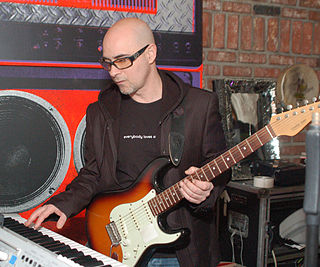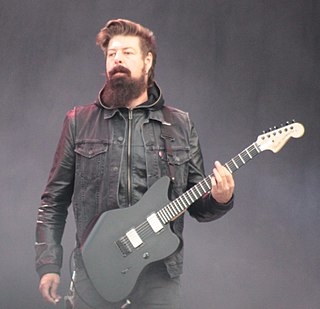A Quote by Miles Davis
The melody is French. But that's the end of the record. I named it "Jean Pierre Then There Were None," you know, because of the big explosion. You'll like it. It's a nice album.
Related Quotes
It's interesting, because I named my first album after my dad because I wanted to find him. My second album was named after my mom because I felt like I learned all my creative talents I learned from her. All the survival stuff, too. And then the next album is 'Maya,' which is not my real name. It's fake.
Well, Led Zeppelin IV! That's it really. I'll tell you why the album had no title - because we were so fed up with the reactions to the third album, that people couldn't understand why that record wasn't a direct continuation of the second album. And then people said we were a hype and all, which was the furthest thing from what we were. So we just said, `let's put out an album with no title at all!' That way, either people like it or they don't... but we still got bad reviews!
There's this Method Man album called 'Tical.' It's his first album. I would just listen to that every day, because the album feels like, if it were a film, it would be black and white. It feels like there's a war percolating throughout the album itself. It's dark, and it has a nice forward pace to it.
In Paris, friend of Bequerel’s, a young physicist-chemist couple named Pierre and Marie Curie, began to scour the natural world for even more powerful chemical sources of X-rays. Pierre and Marie (then Maria Sklodowska, a penniless Polish immigrant living in a garret in Paris) had met at the Sorbonne and been drawn to each other because of a common interest in magnetism.
I think record cover sleeves really led towards, but at the same time the album as we know it didn't come into being until mainly after the Second World War because record labels realized they'd be able to make a lot more money putting all the singles of an artist onto one album and selling the whole album as a kind of a concept.
When I finally stopped [singing], he had been saying, like, the last day or so, he'd been saying, now, I think we should put this one in the album. So without him saying I want to record you and release an album, he kept - he started saying, let's put this one in the album. So the album, this big question, you know, began to take form, take shape. And Rick [Rubin] and I would weed out the songs.
In my opinion, I would still like to go into a studio - because I love the environment of being in a studio - and record a great album beginning to end, but then maybe not release it as an album. Maybe put singles out there, put songs out there - either give some away or release some the traditional way.
You know, I liken it to - when you write a joke for somebody else, it's like you - you know, like the Wile E. Coyote dynamite plunger, where he pushes the plunger down and then you see the fuse go then there's an explosion in the distance? That's like writing a joke for somebody. When you tell the joke, you're in the explosion.
The first record was basically a quick, fast record. The second record, we were going for more of a poppier sound - like a heavy pop sound. For 'Rocket to Russia,' we'd sort of reached our pinnacle. We'd gotten really good at what we were doing, so that's like my favorite record - that's a really good record. It's just great from beginning to end.
You're not going to hit it every single time, and that's why, when I record an album, I do probably close to 50 songs. Each song I record has to get better. If it's not better than the last song that I made, it'll usually linger for a couple of months, and then it'll be put on the backburner, and then there'll be another song that I do, and then it often doesn't make it on the album.
I never want to record something that I'm not proud of just because I think it might be a big hit. There's no positive about that because if you record a song you hate and it's a big hit, then you're singing a song every night that you hate. And if you record a song that you hate and it isn't a hit, then you sold out for no reason.



































